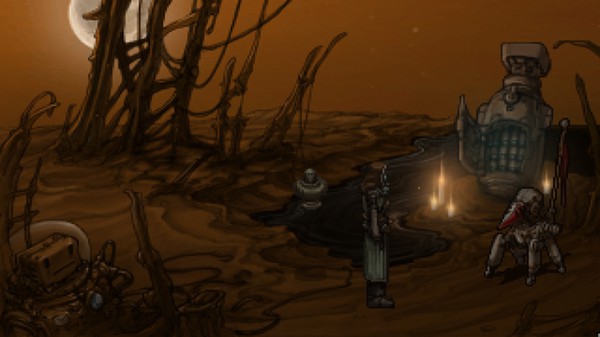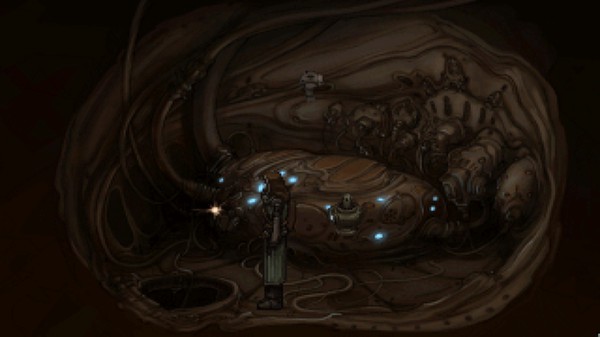Primordia on Steam - User reviews, Price & Information
Life has ceased. Man is but a myth. And now, even the machines have begun to fail. Lead Horatio Nullbuilt and his sarcastic sidekick Crispin on a journey through the crumbling world of Primordia, facing malfunctioning robots, ancient secrets, and an implacable, power-hungry foe.
Primordia is a point & click, adventure and post-apocalyptic game
developed by Wormwood Studios
and published by Wadjet Eye Games.
Released on December 05th 2012 is available on Windows, MacOS and Linux
in 7 languages: English, French, German, Spanish - Spain, Italian, Hungarian and Turkish.
It has received 3,302 reviews of which 3,194 were positive and 108 were negative resulting in an impressive rating of 9.3 out of 10. 😍
The game is currently priced at 9.99€ on Steam, but you can find it for less on Gamivo.
The Steam community has classified Primordia into these genres:
Media & Screenshots
Get an in-depth look at Primordia through various videos and screenshots.
System requirements
These are the minimum specifications needed to play the game. For the best experience, we recommend that you verify them.
- OS: Windows XP SP2 or above
- Processor: Pentium or higher processor
- Memory: 2 GB
- Storage: 1.5 GB
- Graphics: DirectX 5 or above compatibility
- OS Version: 10.11
- Architecture: 64bit
- Memory: 2 GB
- Storage: 1.5 GB
- OS Version: Ubuntu, Debian, Arch - (64 bit)
- Processor: Pentium or higher processor
- Memory: 2 GB
- Graphics: OpenGL
- Storage: 1.5 GB
- Sound Card: Alsa/PulseAudio/DSP
User reviews & Ratings
Explore reviews from Steam users sharing their experiences and what they love about the game.
Similar games
View allFrequently Asked Questions
Data sources
The information presented on this page is sourced from reliable APIs to ensure accuracy and relevance. We utilize the Steam API to gather data on game details, including titles, descriptions, prices, and user reviews. This allows us to provide you with the most up-to-date information directly from the Steam platform.
Additionally, we incorporate data from the SteamSpy API, which offers insights into game sales and player statistics. This helps us present a comprehensive view of each game's popularity and performance within the gaming community.
Last Updates| Steam data | 27 October 2025 07:34 |
|---|---|
| SteamSpy data | 30 October 2025 07:16 |
| Steam price | 30 October 2025 04:44 |
| Steam reviews | 27 October 2025 13:57 |
If you'd like to dive deeper into the details about Primordia, we invite you to check out a few dedicated websites that offer extensive information and insights. These platforms provide valuable data, analysis, and user-generated reports to enhance your understanding of the game and its performance.
- SteamDB - A comprehensive database of everything on Steam about Primordia
- SteamCharts - Analysis of Primordia concurrent players on Steam
- ProtonDB - Crowdsourced reports on Linux and Steam Deck Primordia compatibility































